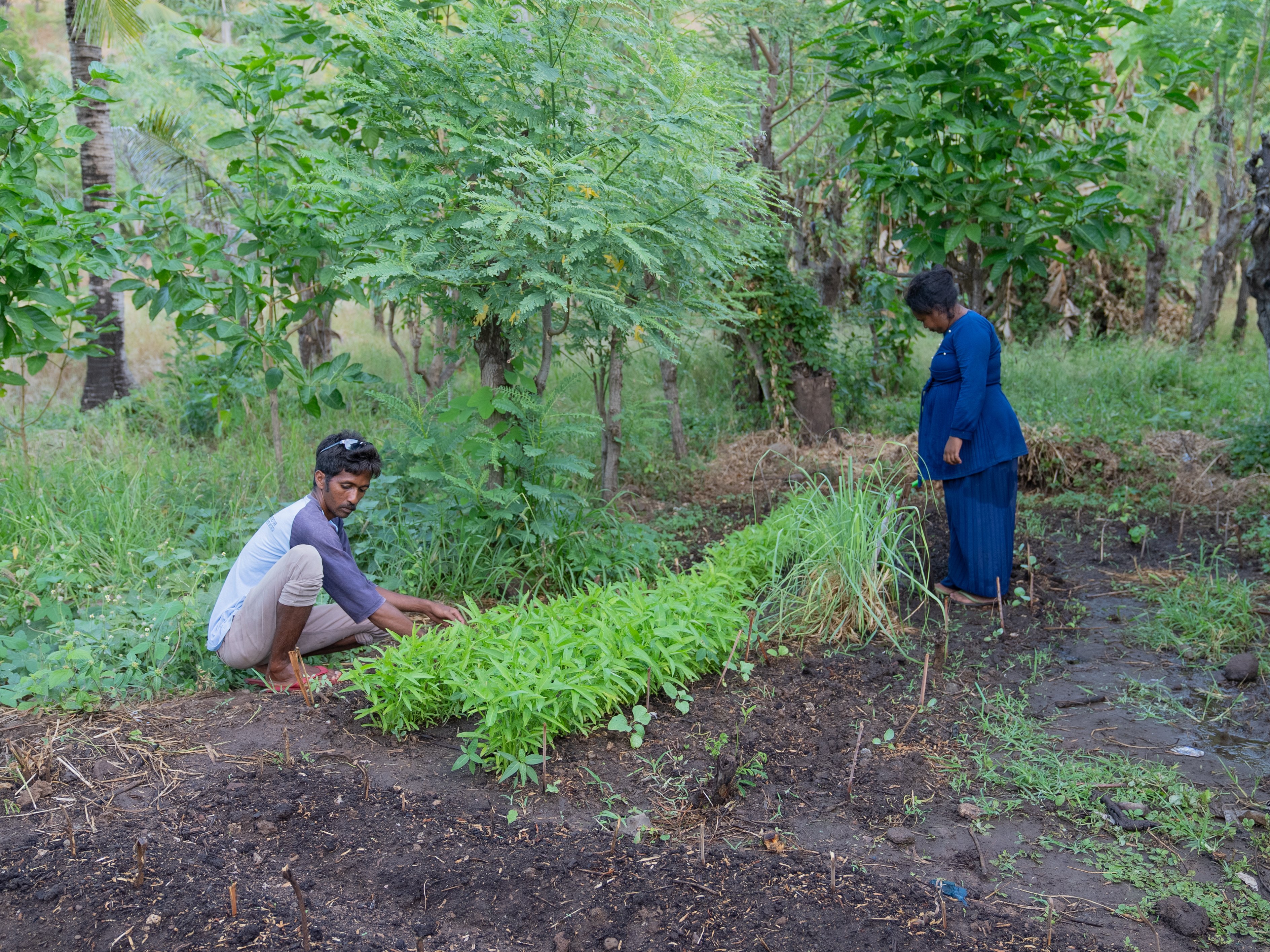For an Indigenous fishing community in Indonesia, climate change has destroyed a way of life. An Oxfam partner is offering an alternative way to make a living: sustainable farming.
The connection between the Bajo tribe and the sea could not be closer.
“The ocean is our bed, and the wave is our headrest,” says a Bajo fisherman named Tasman.
By tradition, the Bajo live in their boats, though many now reside in houses by the shore. Tasman lives in the village of Mekko on the Indonesian island of Adonara. His people are renowned for their ability to dive 70 meters and hunt for fish on a single breath. Fish and the sea are at the center of their lives and culture—and as that center undergoes changes, it is affecting their lives profoundly.
“The ocean comes closer to us,” says Fahri, a 13-year-old fisherman, “but the fish go farther.”
The sea is rising, in other words, and the fish are migrating to waters far from shore.
“In one night, we used to catch a full box of fish,” says a fisherman named Said. “We could get hundreds of big or small fish.”
All that has changed.
“Now, where could we catch fish?” asks Tasman. “We couldn’t find or catch any.”
“Above we struggle to live our life,” says Fahri, “while the life below slowly dies.”

A new way of life
But for the Bajo, all is not lost.
Oxfam is working with a partner organization—the Foundation for Social Studies and Development, known as YPPS—to help the Bajo adjust their lives and tune their ocean-honed senses to the rhythms of the land.
YPPS is helping families cultivate grains and vegetables. Not that farming is easy in a changing climate: these islands are experiencing annual drought. But YPPS is introducing communities to crops and methods that are adapted to current conditions. Sorghum, for example, can withstand heat and low rainfall and can be eaten in place of rice or ground into flour for bread. The organization is training not only the fisherfolk of Adonara but also farming families who live on the islands of Flores and Lembata, helping them make the transition from slash-and-burn methods to more climate-friendly approaches that make use of organic inputs.
“We teach local women to manage agriculture with environmentally friendly concepts,” says Magda, the YPPS project manager. The goal, she says, is to prevent the acceleration of climate change while improving food security for families.
The Bajo community is mourning its losses—but recognizing that life on the islands is still possible.
One woman is matter of fact: “If we don’t have any fish, we can eat our vegetables.”
“The farm is now what our lives depend on” says Fahri. But, he adds, “our love and closeness to the ocean will always live on.”
